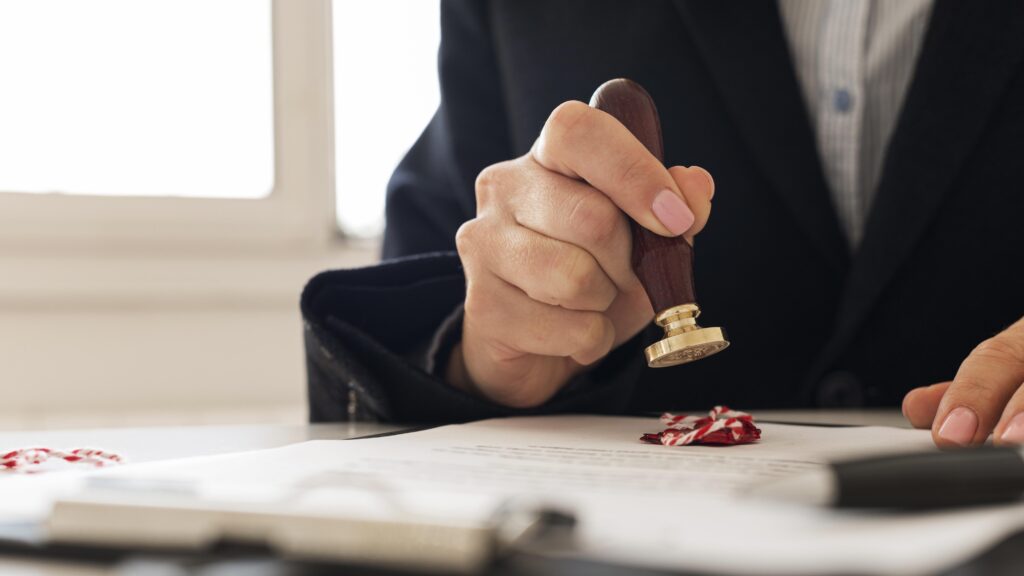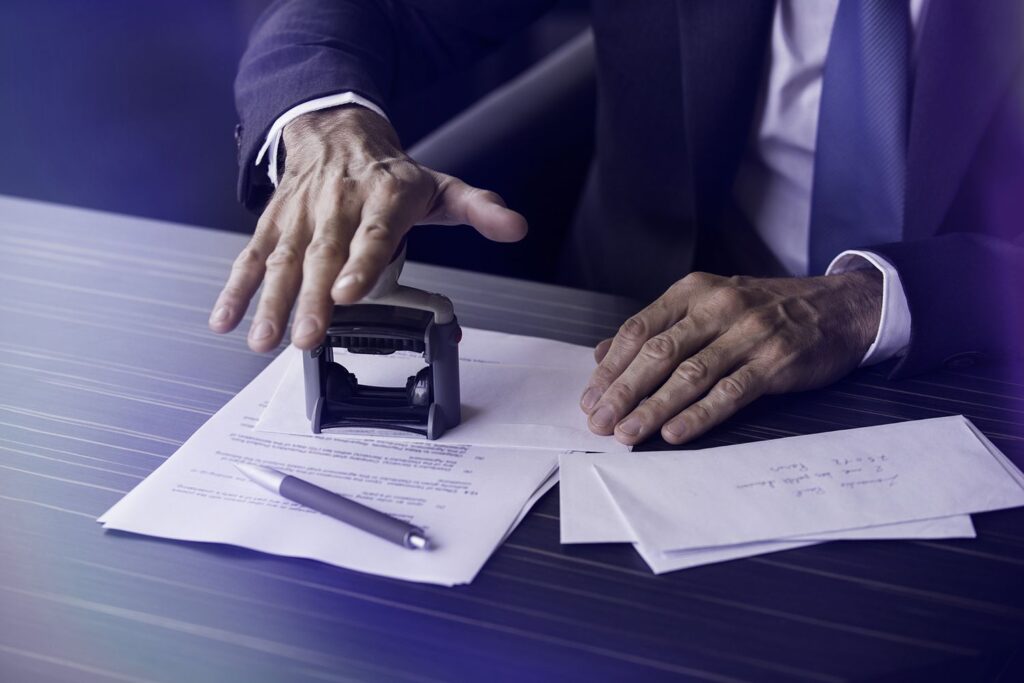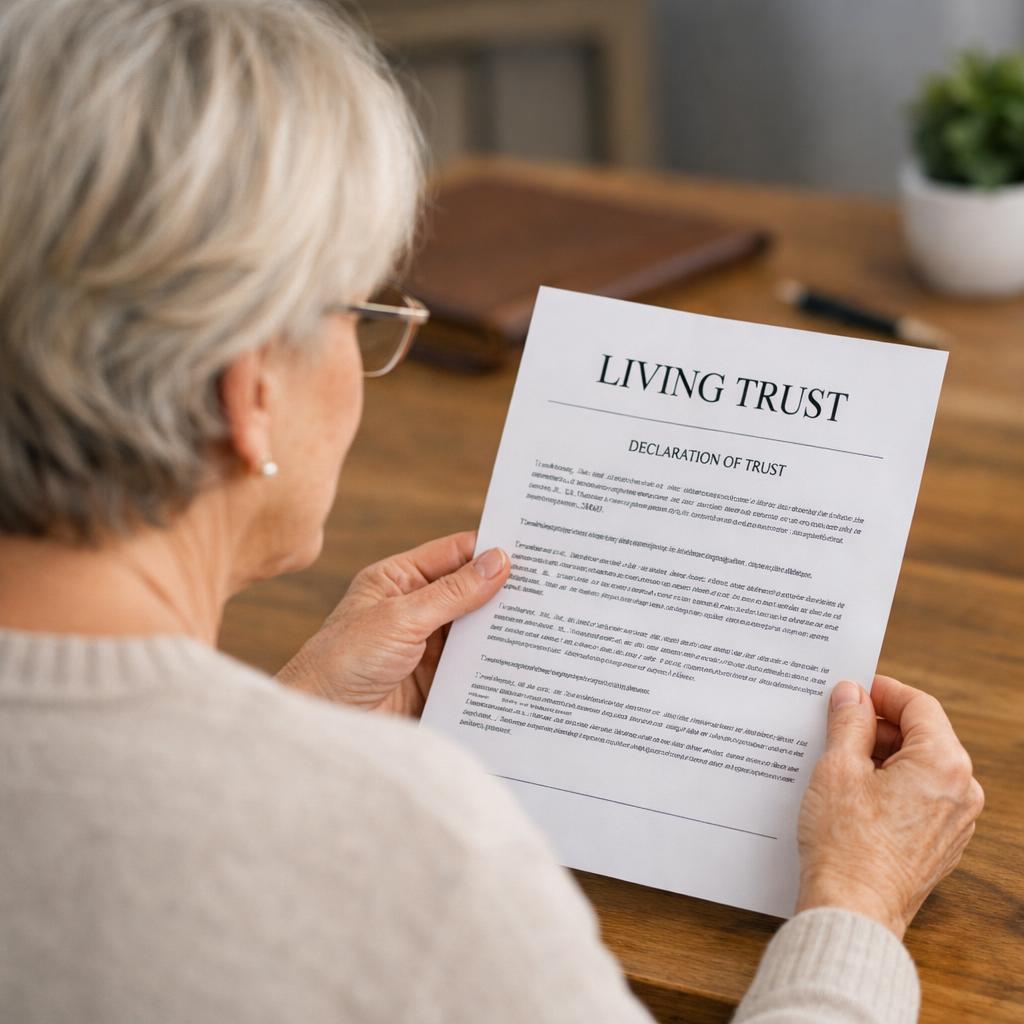In today’s globalized world, authenticating documents for international use has become increasingly important – a little thing known as apostille. So knowing how to get an apostille is one essential method for ensuring the legitimacy of your documents abroad.
Whether planning to work, study, or move overseas, understanding what an apostille is and how one works is crucial. The goal of this article is to guide you through this process, helping you navigate the complexities of document legalization.
Read also: Notary public vs. lawyer – 5 differences and how to choose
What exactly is an apostille, though?

Before talking about how to get an apostille, first, we need to understand what is one. There are many misconceptions regarding this legal resource, so we must clear them up.
An apostille is a form of authentication issued to documents for use in countries that participate in The Hague Apostille Convention of 1961. This international treaty was established to simplify the process of legalizing documents for use abroad – thus ensuring their recognition and acceptance in member countries without the need for further certification.
Under the convention, an apostille is affixed to documents by a designated authority in the country of origin, such as a government office or a court. This certificate verifies the authenticity of the document’s signature, the capacity in which the person signing the document acted, and, where appropriate, the identity of the seal or stamp the document bears.
The apostille itself is a standardized form, consisting of ten specific items:
- Country of origin of the document.
- Name of the person signing the document.
- The capacity in which the person signing the document has acted.
- In the case of unsigned documents, the name of the authority which has affixed the seal or stamp.
- Place of certification.
- Date of certification.
- Authority issuing the certificate.
- Certificate number.
- Seal or stamp of the authority issuing the certificate.
- Signature of the authority issuing the certificate.
The apostille simplifies the legalization process by eliminating the need for further diplomatic or consular authentication, which was previously required. This significantly reduces the time and cost involved in verifying documents for international use.
Documents that commonly receive an apostille include birth certificates, marriage licenses, academic transcripts, notarized affidavits, and powers of attorney.
The introduction of the apostille has facilitated international business, education, and legal matters by ensuring that documents issued in one member country are recognized as valid in another. This system promotes efficiency and trust in cross-border transactions and communications.
How to get an apostille: step by step

1. Identify the document
The first step in obtaining an apostille is identifying which documents need to be authenticated. It’s important to note that not all documents are eligible for an apostille. Generally, public documents such as court records, administrative documents, and notarized private documents can be apostilled.
2. Verify document requirements
Before proceeding, ensure your document meets the requirements for apostille. This might involve getting the document notarized if it’s a copy, ensuring the document is an original or a certified copy, and translating the document if required.
Each type of document and each country might have specific requirements, so it’s crucial to verify these details in advance. For example, some countries may require documents to be certified by a local authority before they can be apostilled, while others may have specific rules regarding the format or language of the document.
3. Contact the relevant authority
In most countries, the Ministry of Foreign Affairs or a designated government office handles the apostille process. For instance, in the United States, the Office of the Secretary of State in each state typically provides apostilles.
Determine which authority is responsible for issuing apostilles in your country and specific region. It’s also advisable to check their website or contact them directly to understand their specific procedures, required forms, and fees.
Read also: Can a notary apostille a document?
4. Submit your document
Once you’ve identified the appropriate authority, you’ll need to submit your document for apostille. This process usually involves filling out an application form, paying a processing fee, and providing a self-addressed stamped envelope for document return.
In some cases, you may be able to submit documents in person, by mail, or through an online portal. Make sure to include all necessary documents and double-check that your application is complete to avoid any delays.
If submitting by mail, consider using a trackable shipping method to ensure your documents are safely delivered.
5. Await processing
Processing times for obtaining an apostille can vary depending on the authority and the volume of requests. It can take anywhere from a few days to several weeks. Be sure to check the estimated processing time when you submit your application.
Some authorities may offer expedited services for an additional fee. During this waiting period, it’s a good idea to keep a copy of your submission receipt or tracking number so you can follow up if necessary.
6. Receive your apostilled document
Once the process is complete, you will receive your document back with the apostille attached. This apostille certificate will include details such as the issuing authority, the date of issuance, and a unique identification number.
The apostille is usually attached to the original document or issued as a separate certificate, depending on the country’s procedures. Ensure that the apostille is securely attached and that all information is correct before using the document internationally.

4 tips for a smooth apostille process
- Double-check requirements to ensure you understand the specific requirements for your document and the destination country to avoid delays.
- Plan ahead and start the process well in advance of your intended travel or use date to accommodate any potential delays.
- If the process seems overwhelming, consider using a professional service that specializes in obtaining apostilles. These services can handle the submission and follow-up, ensuring that your documents are processed efficiently and correctly.
- Make sure your documents are always notarized if you travel a lot. It may not be always required, but it is better to be safe than sorry. Look for reliable notaries in your area to help you with this service, they may even help you with the entire apostille process.
Get in touch with the right professionals to help you out!
This is a service we provide here at Mobile Notary Orlando! So if you are around Central Florida, you can contact us anytime on our phone ((407) 765-0454) or email (dossantosnotary@gmail.com), and we will move right to your location to help you with the notarization of your documents.






